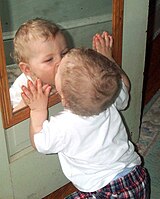பரிசோதனை: திருத்தங்களுக்கு இடையிலான வேறுபாடு
"Experiment" பக்கத்தை மொழிபெயர்த்ததன் மூலம் உருவாக்கப்பட்டது |
(வேறுபாடு ஏதுமில்லை)
|
05:06, 31 மே 2018 இல் நிலவும் திருத்தம்
பரிசோதனை (An experiment) என்பது ஒரு கருதுகோளை ஆதரிப்பதற்கு, மறுப்பதற்கு, அல்லது செல்லத்தக்கதாக்குவதற்காக பயன்படுத்தப்படும் செயல்முறையாகும். ஒரு குறிப்பிட்ட காரணியானது கையாளப்படும் போது என்ன விளைவு ஏற்பட்டது என்பதை நிரூபிப்பதன் மூலம் சோதனையையும் விளைவுகளையும் நுணுக்கமாக பரிசோதிக்கிறது.பரிசோதனைகள் இலக்கு மற்றும் அளவு ஆகியவற்றில் பெரிதும் வேறுபடுகின்றன. ஆனால், முடிவுகள் மீண்டும் மீண்டும் பரிசோதிக்கத்தக்க நடைமுறை மற்றும் தருக்கரீதியா பகுப்பாய்வு ஆகியவற்றை எப்போதும் சார்ந்திருக்கின்றன. இயற்கையான சோதனை ஆய்வுகள் உள்ளன. இயல்பான பரிசோதனை குறித்த ஆய்வுகளும் உள்ளன.

A child may carry out basic experiments to understand gravity, while teams of scientists may take years of systematic investigation to advance their understanding of a phenomenon. Experiments and other types of hands-on activities are very important to student learning in the science classroom. Experiments can raise test scores and help a student become more engaged and interested in the material they are learning, especially when used over time.[1] Experiments can vary from personal and informal natural comparisons (e.g. tasting a range of chocolates to find a favorite), to highly controlled (e.g. tests requiring complex apparatus overseen by many scientists that hope to discover information about subatomic particles). Uses of experiments vary considerably between the natural and human sciences.
Notes
- ↑ Stohr-Hunt, Patricia (1996). "An Analysis of Frequency of Hands-on Experience and Science Achievement". Journal of Research in Science Teaching 33. doi:10.1002/(SICI)1098-2736(199601)33:1<101::AID-TEA6>3.0.CO;2-Z.